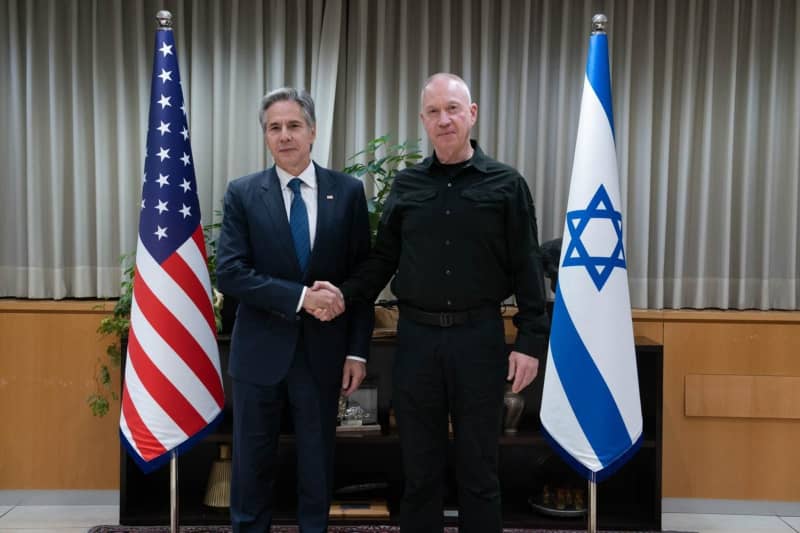US Secretary of State Antony Blinken recently met with Israeli Prime Minister Benjamin Netanyahu in Jerusalem, notably discussing the strategic implications of the death of Hamas leader Yehya al-Sinwar. Blinken emphasized the necessity for Israel to seize this moment not just as a military victory but as an opportunity to negotiate a more stable future for both Israelis and Palestinians. His call to action highlighted the urgency of securing the release of hostages held by Hamas and framing a conflict resolution that promises lasting security and a rebuild of life for Palestinians in Gaza. This pivotal dialogue reflects a broader U.S. interest in fostering a sustainable peace amidst ongoing violence.
During the meeting, Blinken’s spokesman indicated that the discussions underscored the need for a renewed approach toward the post-conflict landscape in Gaza. Both leaders acknowledged that resolving the current tension requires a comprehensive strategy that goes beyond immediate military objectives and addresses the systemic issues facing Palestinian governance, security, and infrastructure. Netanyahu echoed this sentiment, suggesting that the elimination of al-Sinwar could enhance prospects for hostage recovery and facilitate the achievement of Israel’s war objectives, potentially paving the way towards a more constructive transitional phase.
Amidst these discussions, the deteriorating humanitarian situation in Gaza was a critical concern. Blinken urged Israel to facilitate greater entry of humanitarian aid into the besieged area, emphasizing the moral imperative to support the civilian population suffering from blockade-induced shortages. While Israeli military authorities reported the entry of numerous aid trucks into northern Gaza, aid organizations argue that this assistance remains insufficient to meet the overwhelming needs of the local populace. The conversation around humanitarian access highlights the delicate balance between military operations and the humanitarian obligations that Israel faces as the conflict continues.
Lebanon’s situation and Iran’s role in regional security were also part of the dialogue between Blinken and Netanyahu. The discussions illustrated U.S. concern regarding Iran’s influence over militant groups in the region, potentially complicating peace efforts in Israel and Gaza. With Hezbollah in Lebanon being a significant concern, the U.S. aims to reinforce Israel’s security against such threats while also navigating the complex geopolitical landscape that includes Iran’s ambitions. This multidimensional approach reflects the importance of addressing not just immediate tactical actions but also long-term strategic stability within the region.
Moreover, the reactions following the meeting indicate that both leaders recognize the necessity of aligning military successes with diplomatic initiatives aimed at peace. Acknowledging the significance of al-Sinwar’s death, they seem to agree on the potential for a revised dialogue that may lead to a reduction in hostilities. However, the success of these efforts largely depends on transforming military actions into a viable peace process that takes Palestinian needs and rights into account, addressing underlying grievances that perpetuate cycles of violence.
In summary, the meeting between Blinken and Netanyahu marks a crucial point in the evolving U.S.-Israel relationship amidst ongoing conflict with Hamas. Their discussions not only explored immediate military concerns but also emphasized the critical need for humanitarian access, post-conflict governance, and addressing the broader threats posed by regional actors like Iran. Moving forward, the challenge lies in translating these discussions into tangible actions that promote lasting stability, security, and a more hopeful future for both Israelis and Palestinians after a protracted history of conflict.

